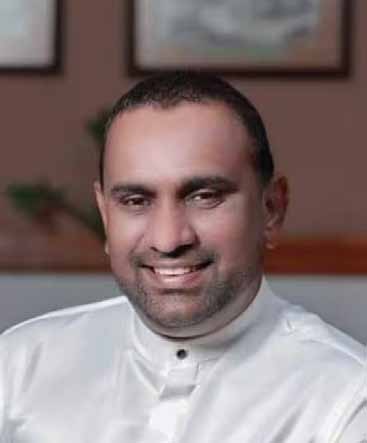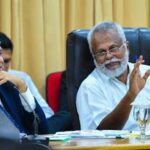Sri Lanka’s political scene, always buzzing with intense rivalries and sudden changes, has just witnessed a remarkable event. SJB MP Chaminda Wijesiri, in an unexpected move, has stepped down from Parliament. This is quite unusual in a setting where political roles are usually held fiercely, sparking a wave of debates and speculation. Wijesiri’s resignation breaks the typical pattern in Sri Lankan politics. It came as a shock to many, especially since politicians in Sri Lanka are known for their stronghold on power. Right after a budget vote, the timing points to some deep thinking behind his decision.
During an emotional goodbye speech in Parliament, Wijesiri shared his worries about the growing dislike for politicians among the public. This dislike has become so intense that it’s affecting even the families of MPs. His stepping down raises essential questions about the values and principles of other MPs who choose to stay on despite public dissatisfaction.
In Sri Lanka, government MPs often face harsher criticism than their counterparts in the opposition, including threats and even violent attacks. Yet, such intense pressure has rarely led to resignations, highlighting different attitudes towards public opinion across political groups.

Wijesiri intends to remain active in politics with the SJB and appears optimistic about his future in elections. However, his resignation brings up a bigger question: will ongoing public frustration lead to more changes or shifts in other MPs’ actions? This is complicated by people’s general mistrust towards politicians, who are often seen as self- serving.
This incident has also caused some uncertainty within the SJB, particularly for its leader, Sajith Premadasa. There’s a concern that new MPs might change sides, as has happened before. The unpredictable nature of Sri Lankan politics, where surprising alliances are not uncommon, adds to this unpredictability.
Moreover, this situation also prompts us to think about the role of money and influence in Sri Lankan politics. Pursuing political power often clashes with public trust and honesty.
In summary, Wijesiri’s resignation is more than just a single event. It mirrors the complex and often stormy nature of politics in Sri Lanka. It highlights the challenges in balancing personal goals, serving the public, and the ever-shifting power dynamics and public perception in Sri Lankan politics.


